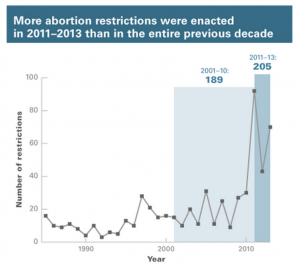Should the Government Be Involved in Healthcare
I think this could be a wee bit controversial. Probably just as well no comments allowed. Christian doctor and author, Chris Bogosh reaches back to America’s founding fathers to argue that “the Affordable Care Act attempts to provide a balance to healthcare and it has four qualities Christians should welcome.”
- It mandates a basic level of health coverage for all American citizens, which is at the heart of biblical compassion.
- It focuses on preventive medical care, which means people will have to live more healthy lives.
- It encourages wise planning for future medical care through instruments like living wills and other advance directives.
- It is forcing healthcare providers, hospitals, pharmaceutical and medical device companies, and nursing homes to be more accommodating to the consumer and not their constituents.
I doubt Bogosh is arguing for wholesale acceptance of Obamacare, but any alternative proposals should try to retain any good elements that somehow found their way into this monstrosity.
Lavishing Kids with Praise Can Make Them Feel Worse About Themselves
“A new set of studies shows that for kids, high praise can have the opposite effect on self-esteem: It can actually make some children feel worse about themselves.” A study found that “when adults give excessive compliments to children with low confidence, the children were less likely to pursue challenges.”
It seems that the best way to improve kids’ self-esteem is to give them frank, straightforward praise. The only problem is, though, that parents and teachers often do the opposite. The researchers also found that adults are more likely to heap inflated praise on children with low-self esteem—presumably in a well-intentioned attempt to make them feel better.
The report calls for teachers to be trained in how to give praise effectively. A great starting point for this is Practicing Affirmation by Sam Crabtree.
Raising Kids with An Attitude of Gratitude
Staying with kids, research has found that there a real benefits to teaching our kids to be thankful.
- Sixth- and seventh-graders assigned to list five things they were grateful for every day for two weeks. It found they had a better outlook on school and greater life satisfaction three weeks later, compared with kids assigned to list five hassles.
- Those who showed high levels of gratitude, for instance thankfulness for the beauty of nature and strong appreciation of other people, reported having stronger GPAs, less depression and envy and a more positive outlook than less grateful teens.
- Teens who strongly connected buying and owning things with success and happiness reported having lower GPAs, more depression and a more negative outlook. “Materialism had just the opposite effect as gratitude—almost like a mirror.”
There’s a lot of work to be done in training our kids to be grateful. “A 2013 study in Personality and Social Psychology Bulletin that tracked materialism in 355,000 high school seniors from 1976 to 2007 found that desire for lots of money has increased markedly since the mid-1970s, while willingness to work hard to earn it has decreased.”
Spirituality Changes and Protects the Brain from Depression
“For people at high risk of depression because of a family history, spirituality may offer some protection for the brain, a new study hints. Parts of the brain’s outer layer, the cortex, were thicker in high-risk study participants who said religion or spirituality was important to them versus those who cared less about religion.”
The research is not conclusive but scientists says that there’s at least a suggestion “that religiosity can enhance the brain’s resilience against depression in a very physical way, they write.” The studies continue.
States Passed 205 Abortion Restrictions in Three Years: That’s Totally Unprecedented

Some reasons for this good news?
- Republicans took control of lots of state legislatures in the 2010 midterm elections, allowing them to pass more restrictions than was politically feasible in the past.
- The Affordable Care Act also ignited a fight over abortion policy, and many State legislatures passed laws restricting insurance coverage of abortion.
- The focus on late-term abortion, with states following Nebraska’s lead on 20-week abortion bans,
- That drop-off in public support for second- and third-trimester abortions could have laid the groundwork for the success of the late-term restrictions.
And we should add, ANSWERED PRAYER.